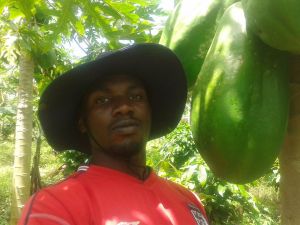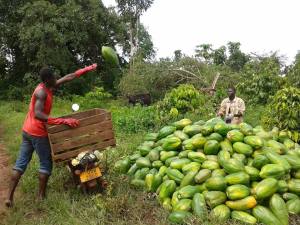The year 2014 has been declared IYFF, the international year of family farming by the United Nations General Assembly. It is a worldwide celebration that aims to change the position of farming families, indigenous groups, cooperatives, and fishing families , putting them at the center of agricultural, environmental, and social policies.
The IYFF aims to focus international attention on the men, women, and youth who operate the more than 400 million family farms around the world.

IYFF strives to raise the profile of family farming and smallholder farming by focusing global attention on its significant role in eradicating hunger and poverty, providing food security and nutrition, improving livelihoods, managing and preserving natural resources, protecting the environment, improving equality, and emphasizing the important role of women farmers and youth to build a more sustainable food system.
According to Jose Antonio Osaba, Coordinator of the IYFF-2014 Civil Society Programme and Advisor to the World Rural Forum, “the most effective way to combat hunger and malnutrition is to produce food near the consumers- precisely what family farming does.” Through local knowledge and sustainable, innovative farming methods, family farmers can improve yields and create a more nutrient-dense and diverse food system.
And family farming integrates two incredibly important, but often overlooked, groups of agricultural producers: women and youth.
“In many developing countries, women are the backbone of the economy,” explains Melanne Verveer, Ambassador-at-Large for Global Women’s Issues, FAO. “Yet, women farmers do not have equal access to resources and this significantly limits their potential in enhancing productivity.”
Overcoming deep-rooted inequalities that prevent female farmers from gaining rights to access land, inputs, and economic resources will allow them to farm more productively. According to FAO, providing female farmers access to the same resources as men could reduce the number of hungry people in the world by 100-150 million people.
And maintaining young people’s interest in farming as a profession is vital to future food security. Today, youth face global unemployment levels of up to 28 percent and many see agriculture as a burden, not an opportunity. But governments, schools and universities, businesses, and international organizations can cultivate the next generation of agricultural leaders by investing in policies and practices that make rural areas and agriculture intellectually stimulating and economically sustainable.
Food for thought: Farmers aren’t just food producers–they are business women and men, teachers in their communities, innovators and inventors, and stewards of the land who deserve to be recognized for their hard work that supports both people and the planet.
Our contribution: We are 2 farmers in Uganda (Laureene and Arnest), who founded Wakulima Young Uganda, a coalition of youth farmers growing fruit. Together, we grow passionfruit, papaya, pineapples, mangoes; and instead of having to jump through the loops trying to find a European buyer, we are committed to find a local market for our fruit along the value chain. We would like to promote healthy meals in schools, and so our first point of entry is supplying packaged fruit to local schools in Uganda. We are also planning to produce fresh fruit juices and dried fruit, depending on the market
Wakulima Young Uganda works with youth farmers, for youth by youth, and supporting family farms mainly operated by youth and women
We are always looking for partners and welcome input and knowledge that can be applied to the project

